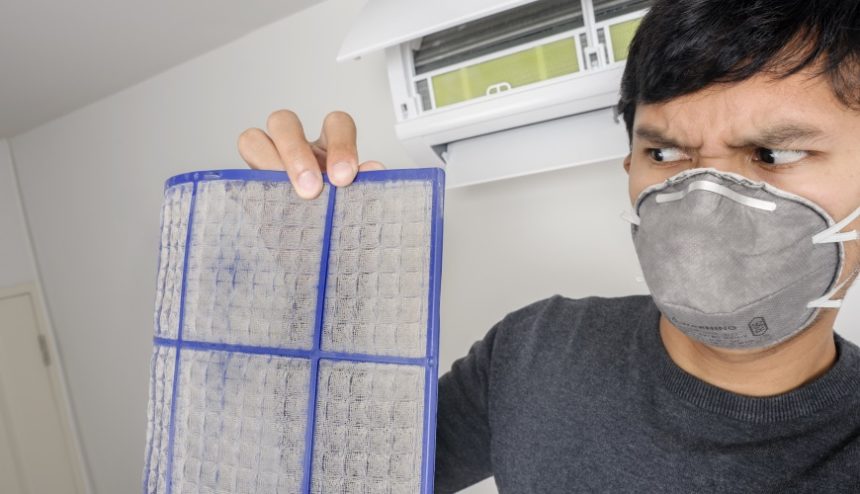 Breathing is essential for life, and healthy lungs help keep us healthier overall. When lungs aren’t healthy, it negatively impacts the rest of your body in many areas. Lung disease can affect your cardiovascular system and even lead to a heart attack or stroke. Keeping your lungs healthy and happy though requires effort. You take 25,000 breaths a day on average, so help your lungs be the best they can be.
Breathing is essential for life, and healthy lungs help keep us healthier overall. When lungs aren’t healthy, it negatively impacts the rest of your body in many areas. Lung disease can affect your cardiovascular system and even lead to a heart attack or stroke. Keeping your lungs healthy and happy though requires effort. You take 25,000 breaths a day on average, so help your lungs be the best they can be.
Many people know that smoke, exhaust, and other outdoor pollutants are bad for their lungs, but you cannot necessarily escape polluted air by being inside. In fact, indoor air quality is sometimes actually worse than what you breathe outside. According to the Lung Institute, many indoor pollutants are much more harmful to the respiratory system. And where do you spend most of your time?
7 Simple Actions = Big Payoff
These proactive steps to improve the air you breathe indoors can make a big difference:
- Cut Chemicals: Whenever possible, avoid using harsh cleaners unless there is adequate ventilation to allow the air to clear again. Fragrance-free options are available too.
- Harness Plant Power: Houseplants help clean the air and add a bit of green to indoor spaces.
- Remove Mold: Look for black, white or bluish patches of mold on the walls in damp areas like basements or crawl spaces. Follow safety precautions when removing mold so the spores do not become airborne. There are different methods to get rid of it completely depending on the surface.
- Change Furnace Filter: A quick and easy way to improve indoor air quality is to change the filter regularly – usually every three months. If you forget, it can run out of room to do its job – trap harmful particles like mold, pet dander, dust, and bacteria.
- Use an Air Purifier: If you are still having respiratory problems from dust after changing the furnace filter, invest in an air purifier.
- Use a Vacuum: Using a vacuum that has a HEPA filter can help remove particulates from the air as you clean.
- Reduce Second-Hand Smoke or Quit Smoking: Cigarette and cigar smoke is a significant cause of asthma and other breathing problems. Remember, lung health affects your cardiovascular system too. If you cut back or eliminate your exposure to tobacco smoke, you lower your risk of lung disease plus heart disease and stroke!
- Quitting is hard but doable. The silver lining is that it doesn’t matter how long you’ve smoked, your lungs can repair themselves over time! When you are ready to kick the habit, do not give up. Research suggests it takes a smoker on average, six attempts before quitting permanently. Luckily, there are more medications and therapies to help smokers stop than ever before so talk to your doctor.
Being aware of what you can do to improve the quality of air within your control is the first step. Now it is time to take action and make your indoor air healthier for you, your family, and all who enter your home or office.


